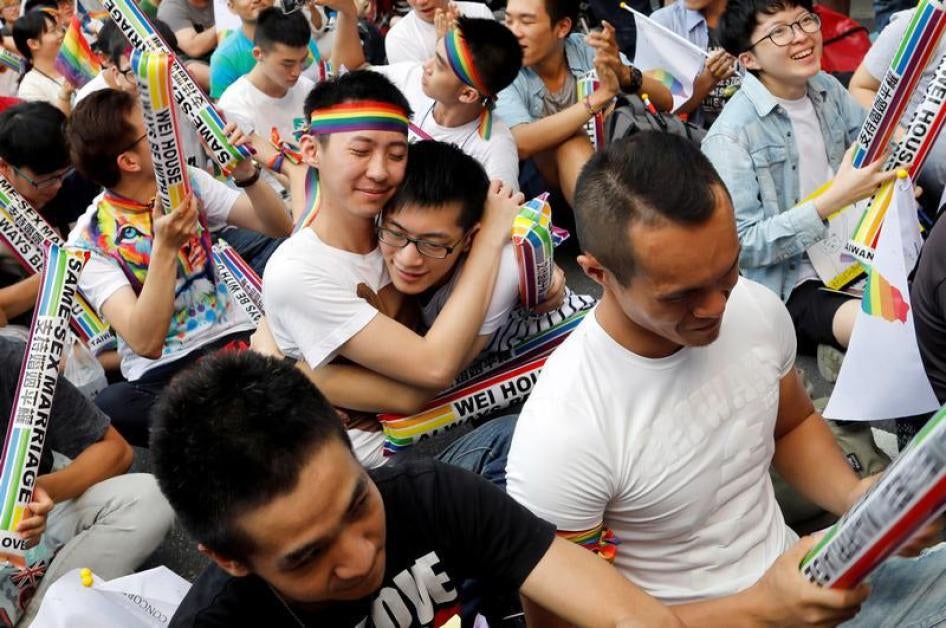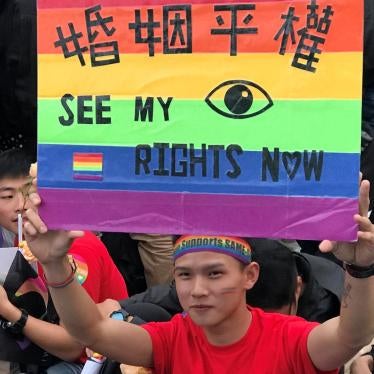Taiwan’s constitutional court this week paved the way for marriage equality in the country by striking down the legal definition of marriage as “between a man and a woman.”
The landmark decision declared this limited definition of marriage unconstitutional and gave parliament two years to amend existing laws, or pass new legislation to include same-sex marriage. If parliament fails to act, same-sex couples will automatically be able to marry. Parliament has previously proposed draft legislation to adopt same sex marriage but to date these initiatives have been unsuccessful.
Taiwan’s ruling, imposing a clear time frame, is not only a victory for supporters of marriage equality in Taiwan, but also a significant development in Asia, where no country has yet allowed same-sex marriage.
The case was brought through two petitions -- one by the City of Taipei, after it was sued for failing to issue marriage licenses for same-sex couples. The other was from Chi Chia-wei, an activist who challenged the civil code’s definition of marriage.
Marriage equality in Colombia (2016) and South Africa (2006) followed the same path, with constitutional courts giving parliament a set time frame to enact enabling legislation. In 2007, the Supreme Court of Nepal ordered the government to appoint a committee to explore same-sex marriage legislation. However, no bill has been introduced. Nepal was the 10th country in the world to include express protection for lesbian, gay, bisexual and transgender (LGBT) people, in its 2015 constitution.
This ruling is a milestone on the road to equality for LGBT people in Taiwan, who face social and cultural stigma and discrimination. While Taiwan has taken a significant step forward, there are strong legal and social impediments to equality in the region. For example, the Supreme Court of Singapore rejected a challenge to the colonial-era sodomy law in 2014, while the LGBT community in Indonesia has faced a barrage of homophobic rhetoric, a wave of arrests, and the recent public caning of two gay men in Aceh. Other countries in the region should take their cue from Taiwan and join this global movement for non-discrimination and equal rights for all.








